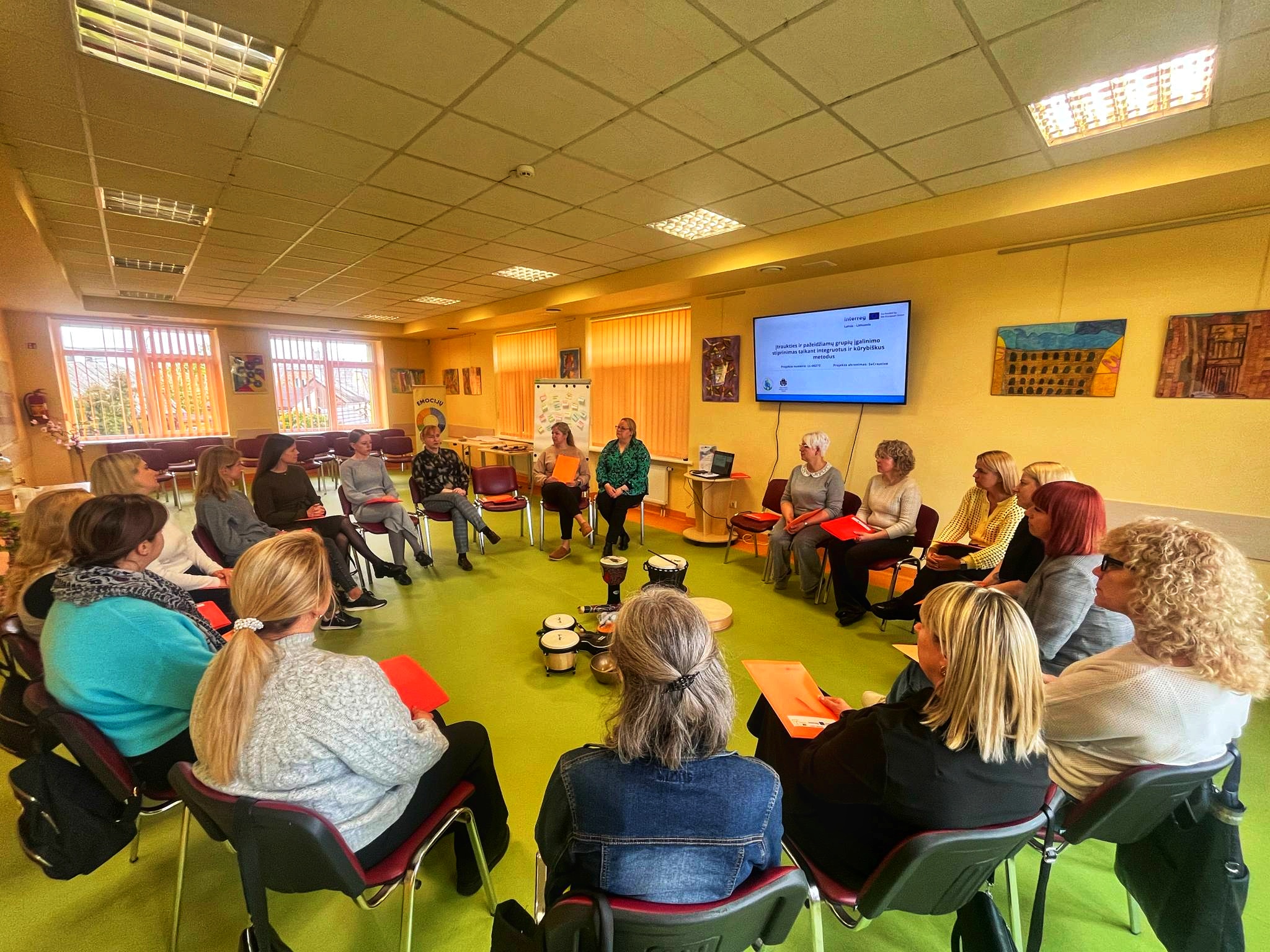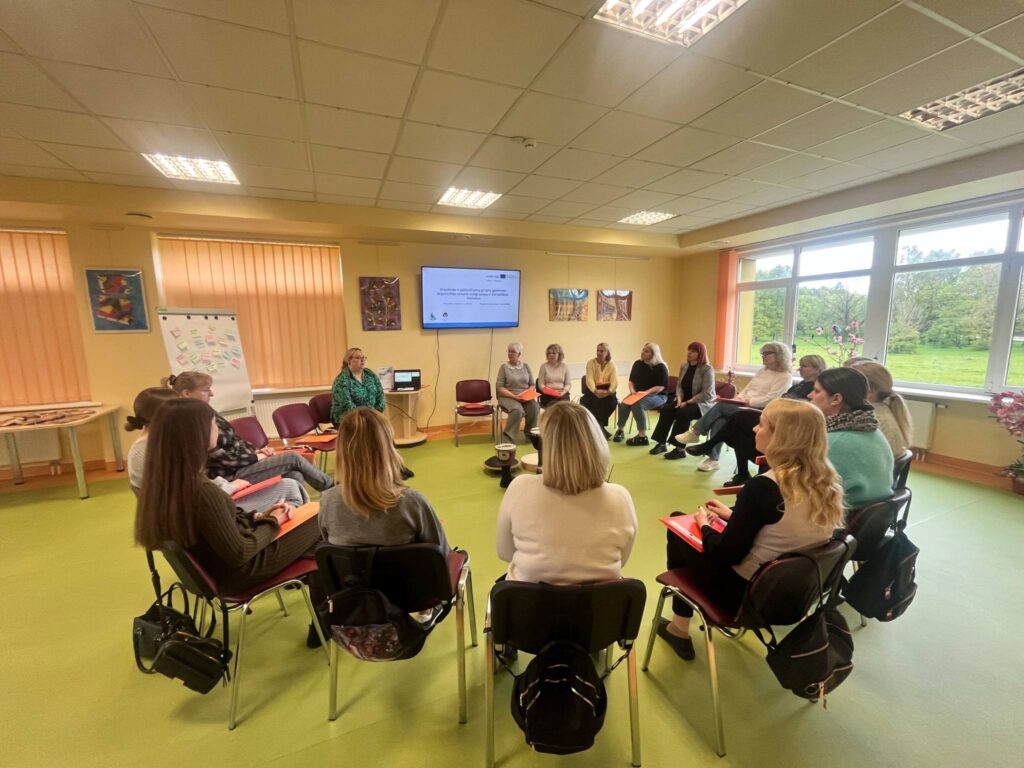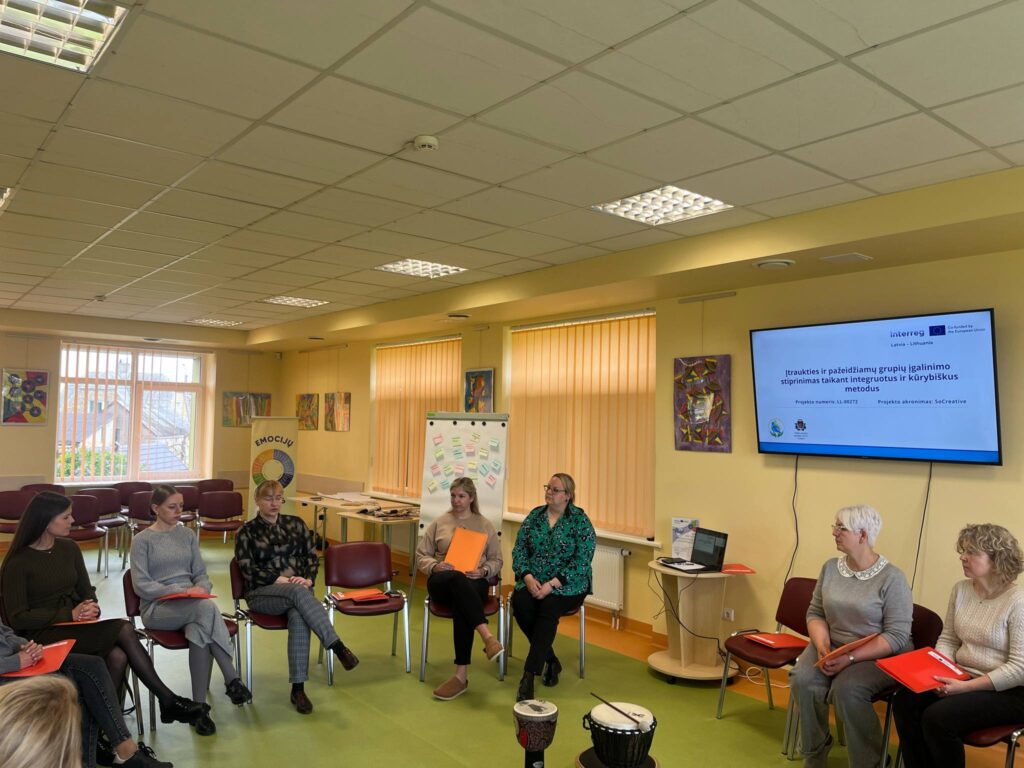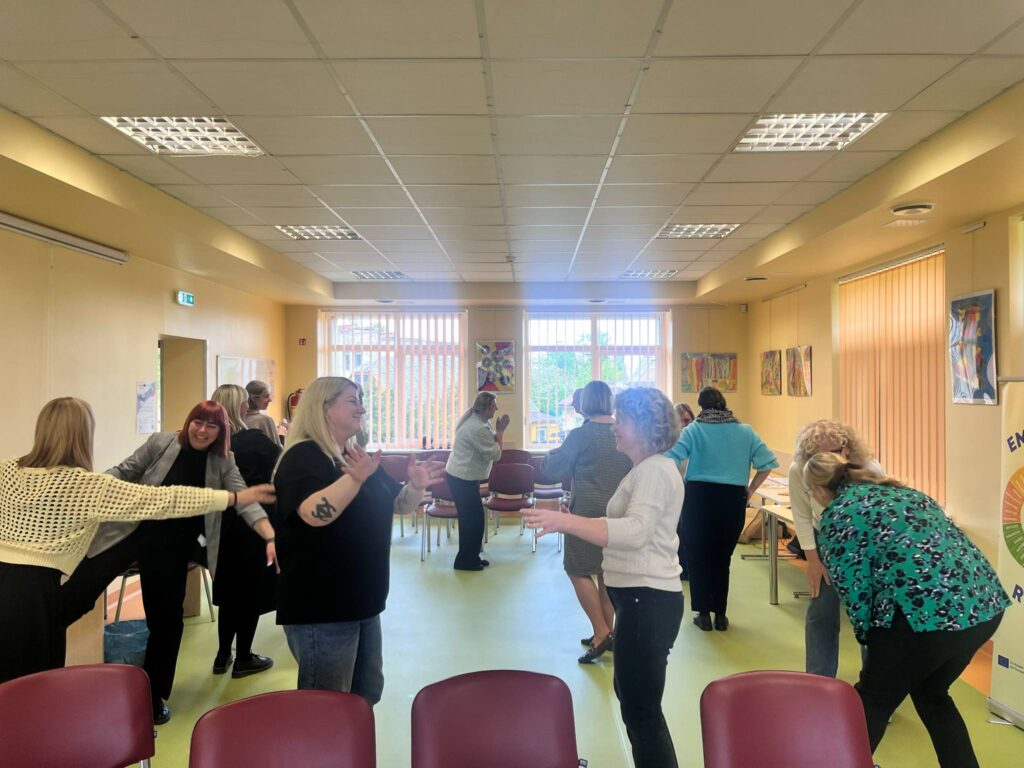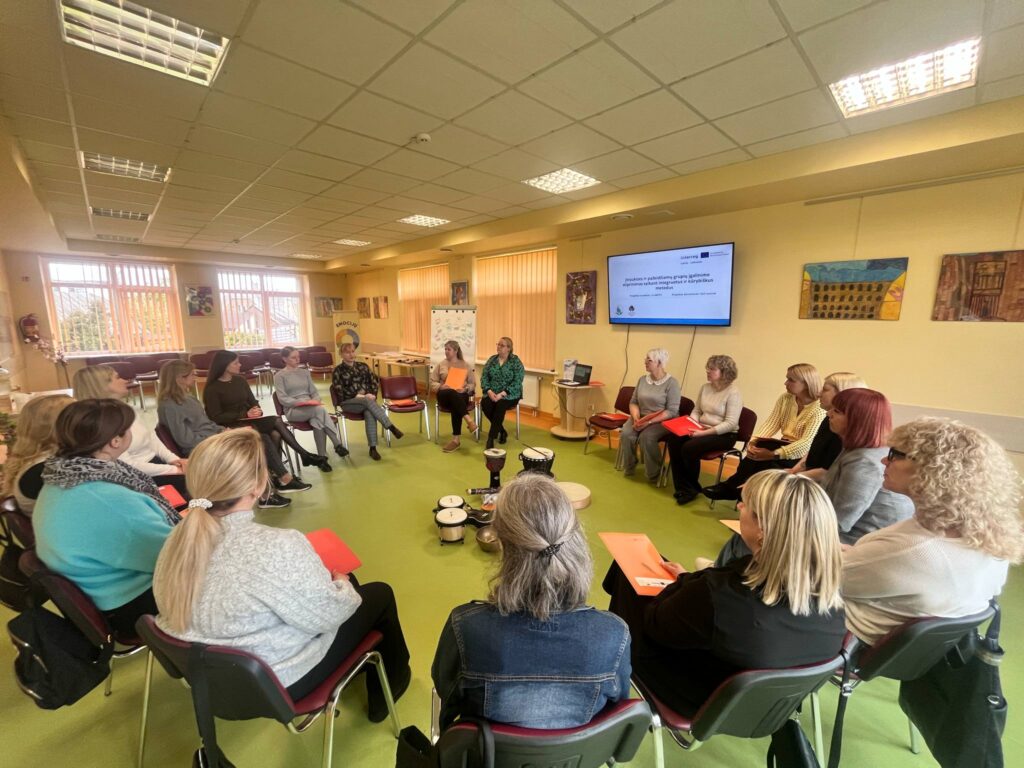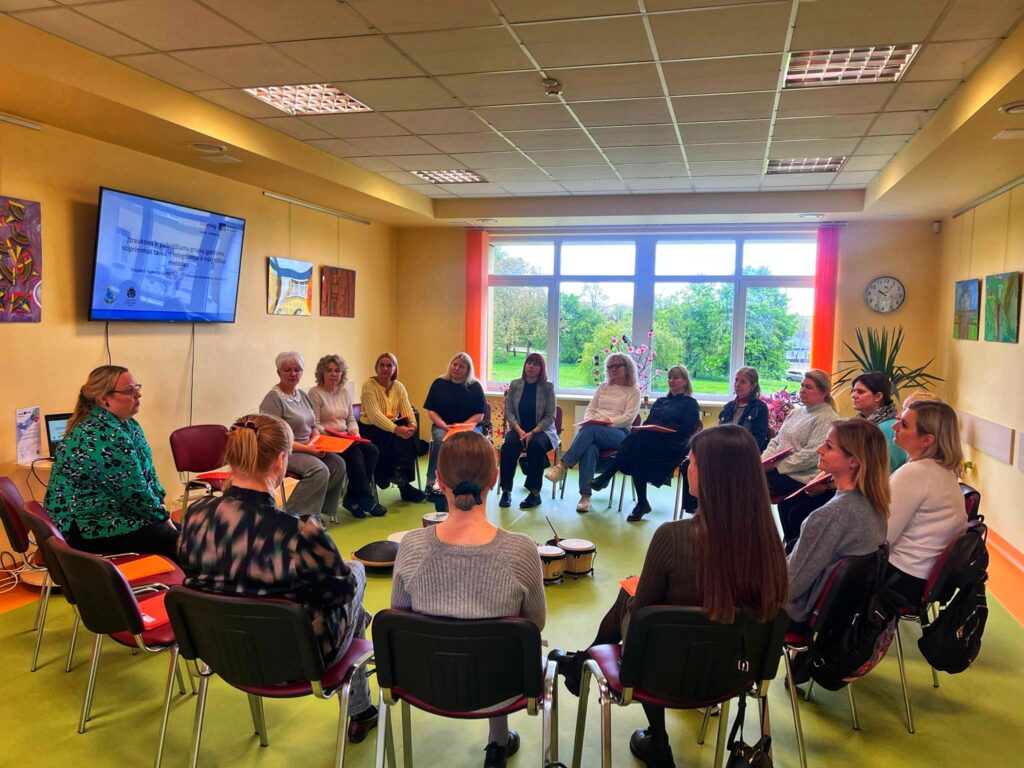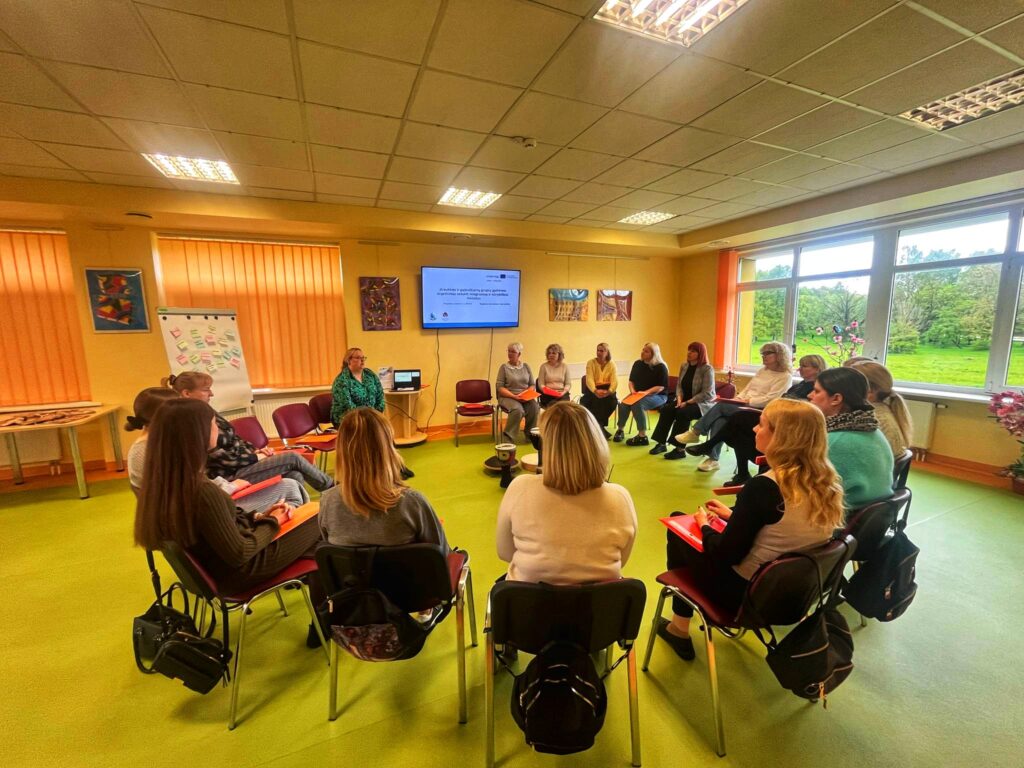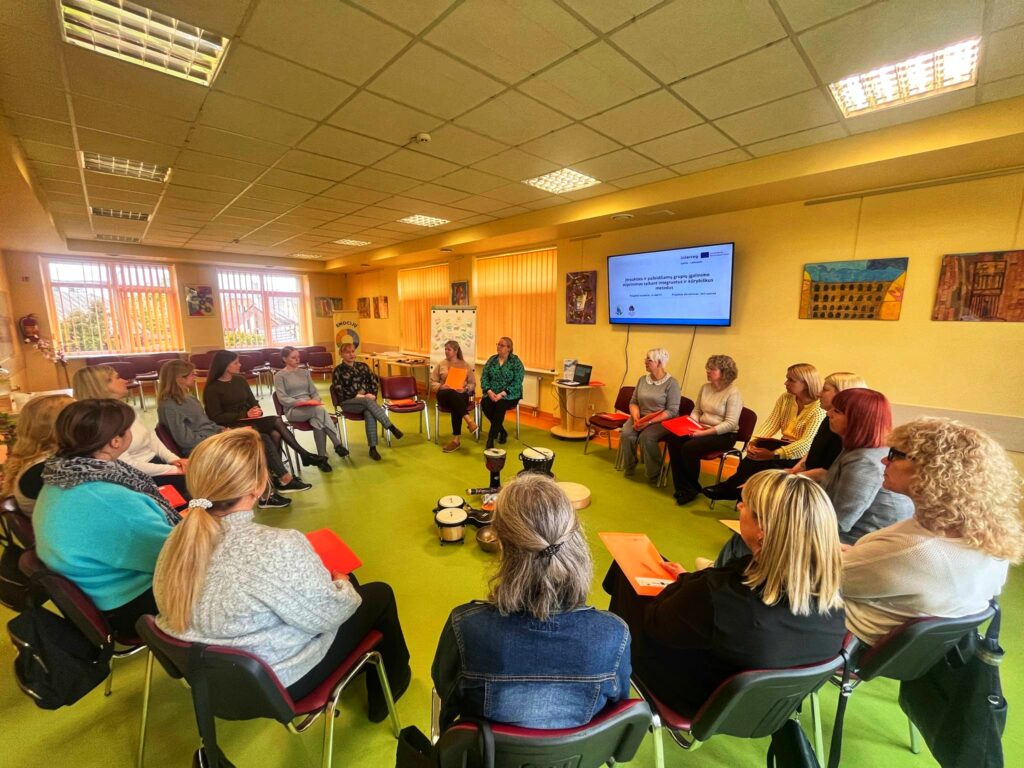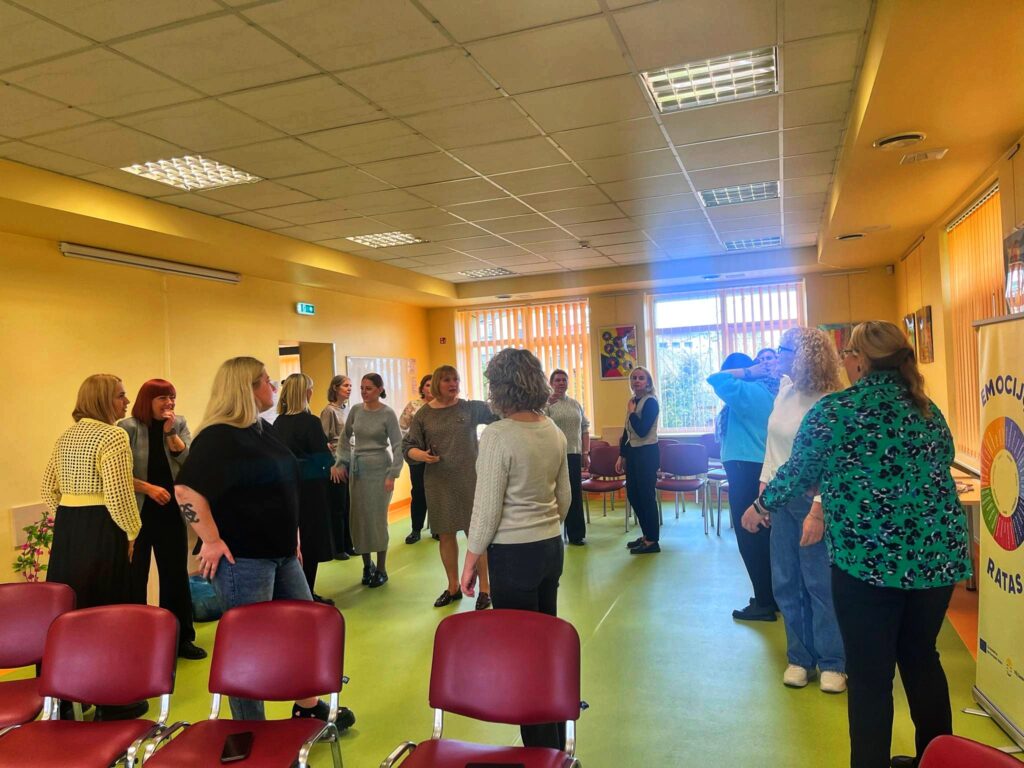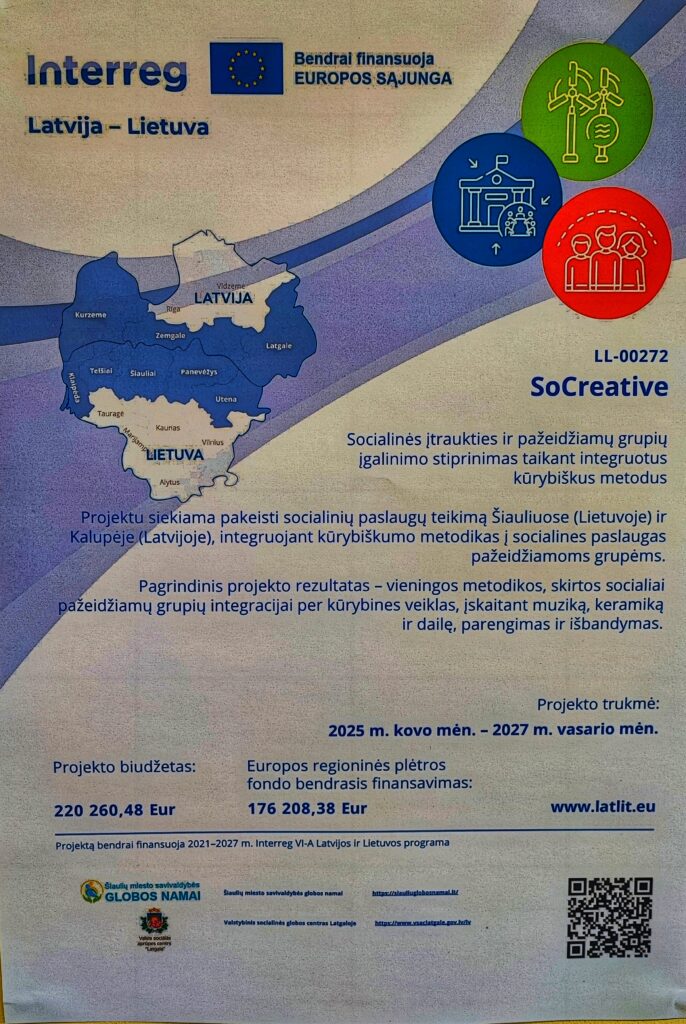On May 16, 2025 the event gathered social service professionals from Siauliai city and district, as well as from the towns of Telsiai and Seduva. The participants represented various social service institutions and work with diverse target groups, including children, the elderly, people with disabilities, and individuals with intellectual disabilities. The event was organised within the Interreg VI-A Latvia-Lithuania Programme’s 2021-2027 project LL-00272 “Enhancing social inclusion and empowerment of vulnerable groups through integrated and creative methodologies”.
The main goal of the meeting was to identify the needs and expectations of social workers regarding the use of creative methods and the integration of innovative tools in the provision of social services. Discussions focused on which creative approaches are most effective and what knowledge or methodological support is needed to apply them sustainably in practice.
The session was moderated by art therapy practitioner Loreta Kačiusyte Skramtai, who has many years of experience working with a wide range of social groups. She emphasized that creative activity is not only meaningful engagement but also a powerful tool for emotional well-being, self-expression, and communication.
Particular attention was given to activities involving ceramics, visual arts, and music:
- Ceramics and clay modeling help develop fine motor skills, reduce anxiety, and promote concentration. Working with natural materials fosters inner calm and provides a sense of fulfillment through creativity.
-
Visual arts activities, such as painting and drawing, allow for emotional expression, improve mood, and enhance self-esteem – especially valuable when working with reserved or less verbally expressive clients.
-
Music sessions, whether active (rhythmic movement, instrument playing) or passive (listening to music), strengthen social bonds, boost mood, and encourage a sense of community.
Focus group participants unanimously agreed that integrating such creative activities into social service provision not only enriches clients’ daily lives but also supports deeper emotional and social transformation.
During the discussion, important topics were addressed that will contribute to the development of a methodological toolkit for professionals as part of the project. Participants shared insights on the most practical format for such a toolkit, identified knowledge gaps in working with specific target groups, and expressed the need for further training and support to confidently and creatively use artistic methods in their work.
This meeting marked an important step toward building a sustainable, creativity-oriented social service system where art becomes an integral part of everyday care. A similar focus group will soon be organized for social work professionals in Latvia. Later, Lithuanian and Latvian specialists will meet to summarize the collected insights and ensure the effective implementation of the next phases of the project.


